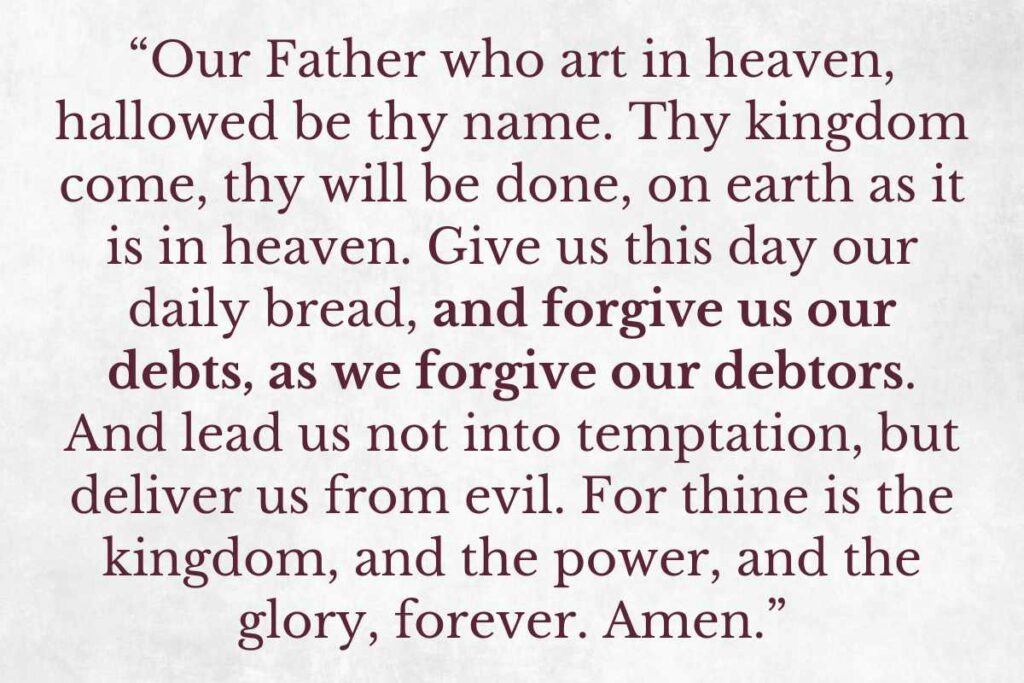Change to the Lord’s Prayer

Dear Fourth Church Family,
To bring the language of the Lord’s Prayer into closer conformity with the language of Scripture, this week Fourth’s pastors and Session approved changing the wording of one phrase in the Lord’s Prayer.
The language of the Lord’s Prayer that we corporately recite every Sunday is taken from Matthew 6:9-13; the literal translation of the original Greek for Matthew 6:12 should be rendered “forgive us our debts, as we forgive our debtors,” as opposed to “forgive us our trespasses, as we forgive those who trespass against us,” which is the language we currently recite.
While using this new wording may feel awkward for a time, the importance of conforming to the text is the ultimate purpose. The words “debts” and “debtors” not only represent a more faithful rendering of the Greek text of Matthew, but also capture the broader theological connotations of sin as taught in Scripture, i.e., as consisting not simply in “trespasses” but in “falling short of God’s glory” and “missing the mark,” thus conveying the sense of “indebtedness, guilt, and sin.” The Westminster Standards, that we confess as containing the system of doctrine taught in Scripture, also use the language “forgive us our debts, as we forgive our debtors”.
The use of “forgive us our trespasses, as we forgive those who trespass against us” dates to the 1529 William Tyndale translation of Matthew, and then to the 1549 Book of Common Prayer and later additions of the Book of Common Prayer.
For these biblical, theological, confessional, and historical reasons we will now recite the Lord’s Prayer in our bulletin as follows:
“Our Father who art in heaven, hallowed be thy name. Thy kingdom come, thy will be done, on earth as it is in heaven. Give us this day our daily bread, and forgive us our debts, as we forgive our debtors. And lead us not into temptation, but deliver us from evil. For thine is the kingdom, and the power, and the glory, forever. Amen.”
Grace and peace,
Todd
